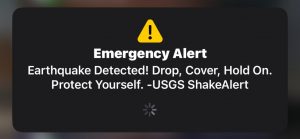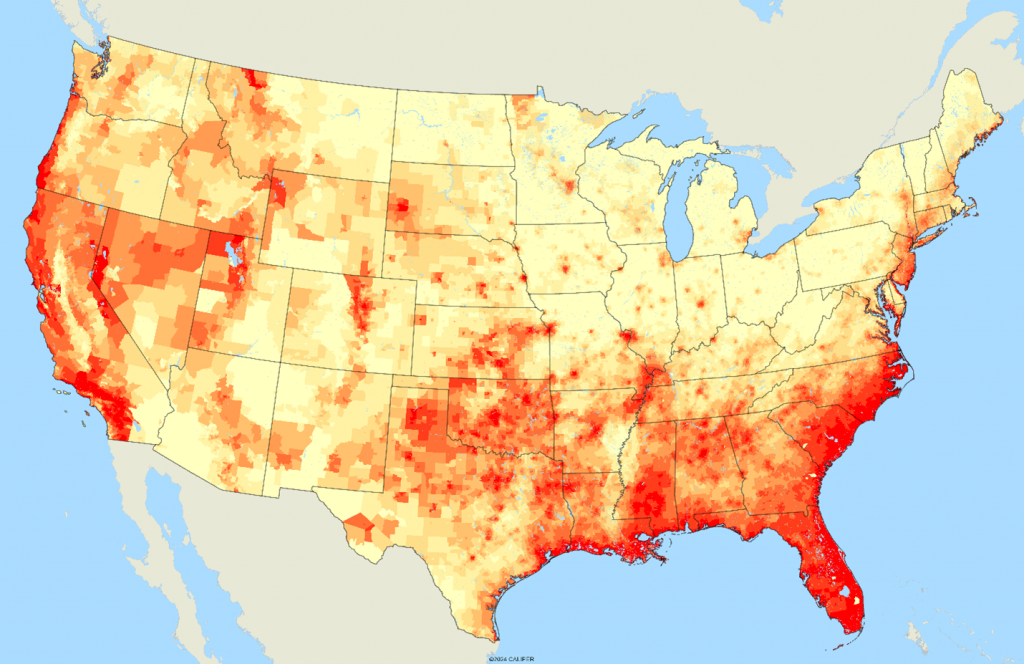Last week, I was sitting with my friend Andy having coffee when that unmistakable California special hit. By earthquake standards, it was nothing to write home about, a 4.7 with its epicenter about five miles due south of us, halfway between Malibu and Thousand Oaks. In typical California fashion, this was followed by a brief period of silence as people contemplated what had just occurred.
In modern California though, the silence was broken by the sound of a dozen or so phones which issued a less than timely warning:

The earthquake warning system aims to tell us about a pending quake up to 30 seconds before it happens, so instead of crawling under our tables, the silence was broken by robust laughter.
We recently had a bit of a heat wave, with temperatures hitting the low 100’s in an area where mid-80’s are the norm during late summer. That meant that someone threw out the ‘earthquake weather’ theory to explain the earthquake. We first moved to California from Toronto in the early 1990’s, and it was after the Northridge quake in 1994 that we first heard about earthquake weather. That very devastating quake hit on a beautiful winter morning – above average temperature and not a cloud in the sky.
The notion goes back at least as far as Aristotle in 4th century BC and is widely believed by many native Californians. Most scientists, including the locally famous Lucy Jones of Caltech, assert that there is no such thing, but really to no avail. It is likely a primarily psychological effect, where we tend to remember unusual details about quakes that we notice – which surprisingly to non-Californians are few and far between. Most minor quakes go unnoticed by anybody who has lived here for more than a few months, though on a slow news day they are reported on national news broadcasts.
But for most of us in Southern California, the last memorable quake was Northridge, and yes, the weather that day was unusual for winter. See? Earthquake weather is a thing.
What about other myths related to natural disasters? Do tornados tend to like trashing trailer parks? Do hurricanes naturally gravitate towards hitting urbanized areas of the coast? In both cases, the answer is probably not. Why do we think that tornadoes like trailer parks? Largely because a tornado is likely to cause more damage if it touches down on mobile homes than if it touches down on a neighborhood of brick homes. And the local Eyewitness news broadcast is more likely to choose the more damaged neighborhood for its 5:00 report, which further entrenches the notion.
Pattern recognition is perhaps the greatest use of AI, since we humans tend to differentially weight incidents – either by remembering the details of recent events while ignoring those of older events, or by remembering what was unusual about a particular day when an event occurred. Many of us remember in vivid detail what we were doing, where we were, and perhaps even the weather, on the morning of September 11, 2001, and yet could not even begin to tell you what we were doing on the day before or the day after.
We suspect that AI driven analyses would once and for all reveal that the probability of an earthquake at any particular location is unrelated to the weather conditions, but this would not likely stop people from thinking that earthquake weather is a real thing.
For those of you who want to live someplace safe we added together the indexes for environmental risks (yes, we know they really aren’t equally important) – even including sea level rise, despite the fact that few humans are so slow moving that they could not get out of the way:

Those who are risk averse should consider moving to areas in yellow, while thrill seekers should head towards the red zones…. the most dangerous place? No doubt about it: New Orleans, Louisiana, and it doesn’t help that the place is below sea level.
California is like a big theme park with a couple of seriously awesome rides. The ride is short and thrilling, but unlike a theme park, you don’t wait in line. And it seems that checking the weather won’t tell you if the ride is about to start.
